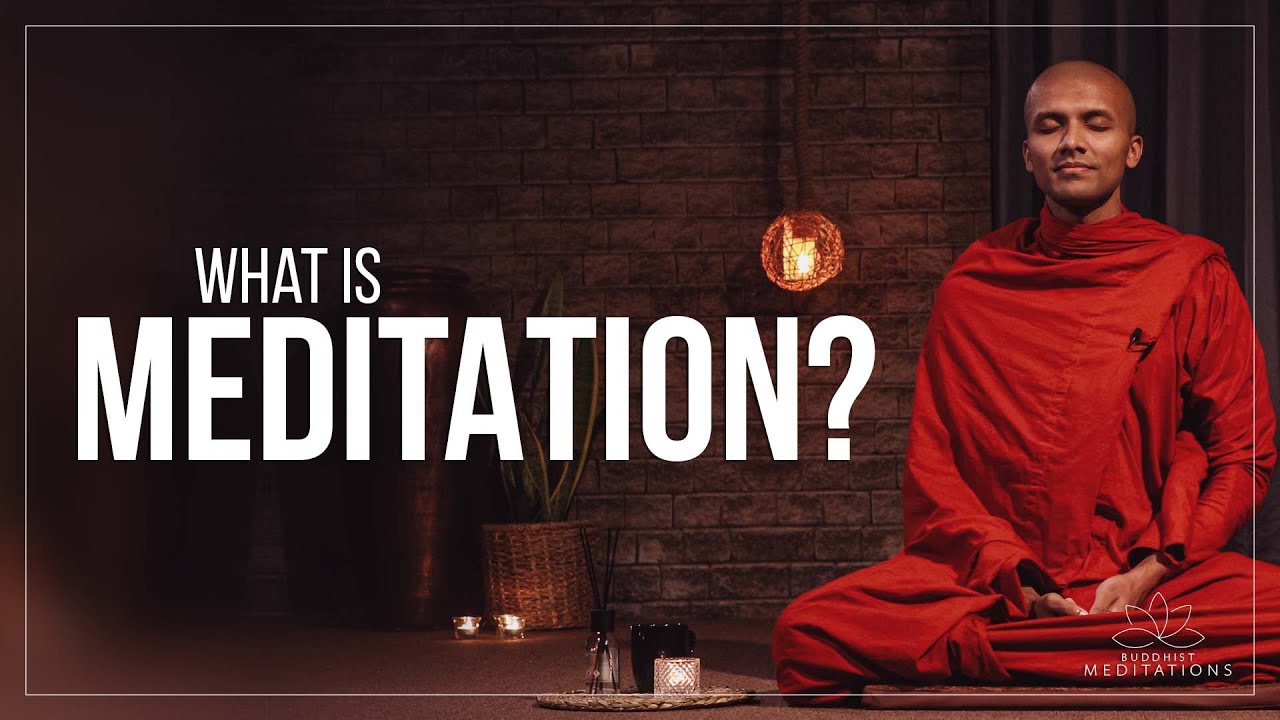What does it mean to be happy in life? | Buddhism In English
Summary
TLDRIn this video, the speaker explores the concept of happiness from a Buddhist perspective, highlighting two types of happiness: material and spiritual. For householders, the Buddha outlines four key types of happiness to achieve: the happiness of ownership (earning wealth righteously), the happiness of enjoyment (spending on others and good causes), the happiness of freedom from debt (financial independence), and the most valuable, the happiness from living a blameless life (acting with a good heart and wholesome intentions). The speaker encourages everyone to strive for both material and spiritual happiness for a fulfilled life.
Takeaways
- 😀 Happiness is the ultimate goal of every living being, and everything we do is aimed at achieving it.
- 😀 There are two types of happiness: material happiness and spiritual happiness, both essential for a good life.
- 😀 A household life involves earning money, spending it, and living a balanced life with family, while a monk's life seeks spiritual happiness over material pursuits.
- 😀 Buddha teaches that seeking happiness is not wrong, but it must be pursued in a righteous and balanced way.
- 😀 The first type of happiness for householders is the happiness of ownership, achieved through hard work and earning money ethically.
- 😀 The second type of happiness is the happiness of enjoyment, where one enjoys the wealth they’ve earned in ways that don’t harm themselves or others.
- 😀 The third type of happiness is the freedom from debt, where financial independence brings a profound sense of freedom and peace.
- 😀 The fourth and most important type of happiness is the happiness from living a blameless life, built on kindness, integrity, and a wholesome heart.
- 😀 Material happiness alone cannot bring lasting contentment; the state of one's heart and life choices determine true happiness.
- 😀 Living a righteous, loving, and good-hearted life is the ultimate source of happiness, according to Buddha's teachings for householders.
Q & A
What is the main purpose of human actions according to the script?
-The main purpose of human actions is to achieve happiness. Everything we do, including work and relationships, is ultimately aimed at making ourselves and others happy.
What are the two types of happiness mentioned in the video?
-The two types of happiness are material happiness and spiritual happiness. Both are important for a fulfilling life.
What is the difference between the household life and the monk's life in Buddhism?
-In Buddhism, the household life involves living with a family and engaging in material pleasures, while the monk's life (homelessness life) involves renouncing family and possessions to focus on spiritual happiness.
Can monks pursue material happiness?
-Yes, monks can pursue material happiness but with limitations. They are allowed to seek material pleasures to some extent, as long as it doesn't disturb their spiritual peace.
What is the first type of happiness that a householder must achieve?
-The first type of happiness is 'Atisuka,' or the happiness of ownership. This comes from earning money righteously, without harming others, and feeling content with the wealth you own.
What does 'Besuka' mean in the context of household happiness?
-'Besuka' refers to the happiness of enjoyment. After earning money, you should spend it in a way that benefits others, such as helping your family or charitable causes.
What is the significance of the happiness of freedom from debt ('Anuka')?
-The happiness of freedom from debt ('Anuka') comes from being financially free, without any loans or debts. It brings a sense of liberation and reduces stress, leading to greater happiness.
Why is 'Anavajasuka' considered the most important type of happiness?
-'Anavajasuka' is the happiness of living a blameless life. It is the most important because it reflects the peace and contentment that come from living with integrity, kindness, and good intentions, which provide lasting happiness beyond material wealth.
How should a householder balance material and spiritual happiness?
-A householder should strive to achieve both material and spiritual happiness. Material happiness comes from earning and enjoying wealth righteously, while spiritual happiness is achieved through living a virtuous and blameless life.
What role does a good heart play in achieving happiness according to the Buddha's teachings?
-A good heart is essential for achieving lasting happiness. Living with wholesome intentions and doing good for others brings the deepest and most valuable form of happiness, as it allows you to live without regret or inner conflict.
Outlines

Esta sección está disponible solo para usuarios con suscripción. Por favor, mejora tu plan para acceder a esta parte.
Mejorar ahoraMindmap

Esta sección está disponible solo para usuarios con suscripción. Por favor, mejora tu plan para acceder a esta parte.
Mejorar ahoraKeywords

Esta sección está disponible solo para usuarios con suscripción. Por favor, mejora tu plan para acceder a esta parte.
Mejorar ahoraHighlights

Esta sección está disponible solo para usuarios con suscripción. Por favor, mejora tu plan para acceder a esta parte.
Mejorar ahoraTranscripts

Esta sección está disponible solo para usuarios con suscripción. Por favor, mejora tu plan para acceder a esta parte.
Mejorar ahora5.0 / 5 (0 votes)






